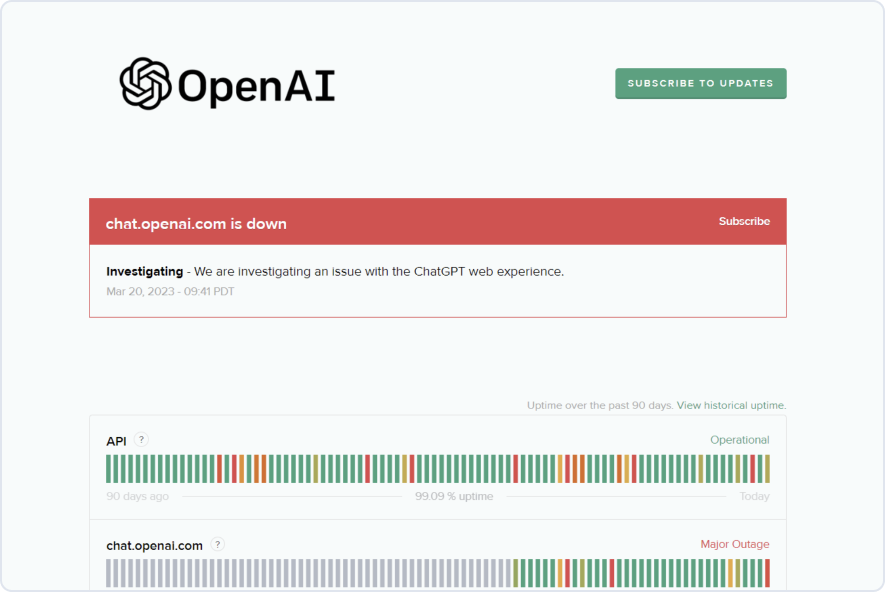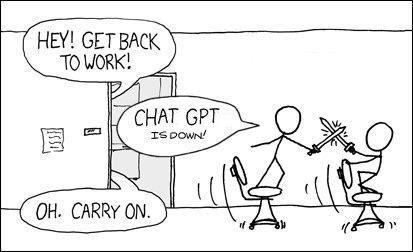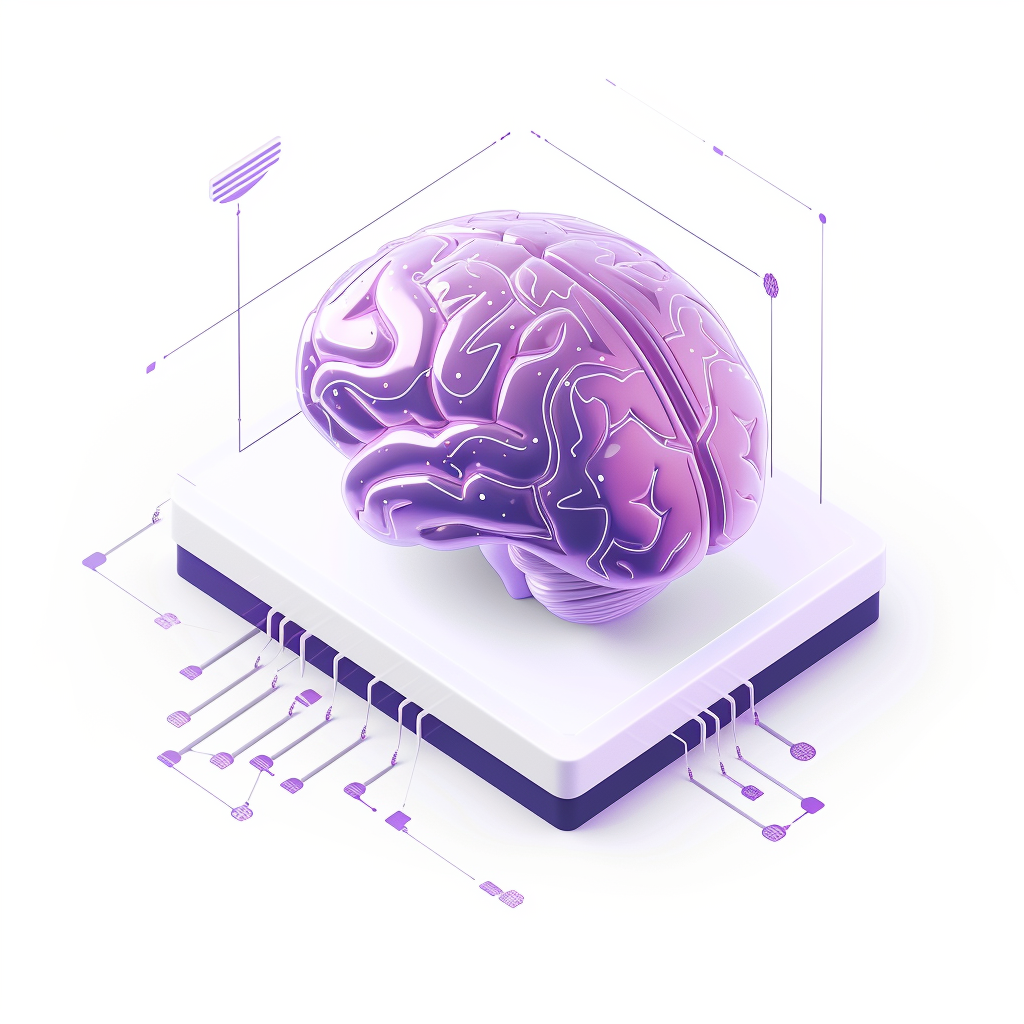Ever found yourself stuck midway through a project because ChatGPT suddenly stopped working? It always seems to happen at the worst times—right before a deadline or during an important task. If you’ve been refreshing the page, wondering when it will be back or why it’s not responding, you’re not alone. Outages like this leave users everywhere scrambling for answers, trying to figure out if the service is down or how long the disruption might last.
These interruptions aren’t uncommon, and they often affect more than just the chat interface. Developers relying on OpenAI’s API for their apps and services feel the hit just as hard, with workflows grinding to a halt. Whether you use ChatGPT for writing, coding, or managing your business, losing access unexpectedly can throw everything off track.
In this article, we’ll dive into the reasons ChatGPT might go down, how long outages typically last, and what you can do in the meantime. We’ll also look at alternatives—because having a backup AI tool (like Claude, Gemini, or Fello AI) can help ensure you’re not left stranded the next time this happens.
Is ChatGPT Down Right Now?
If ChatGPT isn’t working, the first thing to do is check if the issue is affecting everyone or just you.
1. Check OpenAI’s Status Page
The quickest way to confirm if there’s an outage is by visiting OpenAI’s status page. This page is updated regularly with official reports on downtime or technical problems.

2. Monitor Social Media
OpenAI often posts updates on Twitter/X or their blog when there’s a disruption. Checking their feed can give you real-time information about the situation.
3. Check Community Forums
Platforms like Reddit or Discord are also great places to look. Users frequently share their experiences with outages, and it can help you gauge if others are facing the same problem.
What to Do if No Outage is Reported
If there’s no sign of an outage, the issue might be on your end. Start by refreshing the page or clearing your browser cache – sometimes a simple reset can solve the problem.
It’s also worth trying a different network. If you’re on Wi-Fi, switch to mobile data, or vice versa, to rule out any connection issues. Restarting your device – whether it’s your computer, phone, or even your router – can help refresh connections and potentially resolve the issue.
If you have access to another device, try logging into ChatGPT from there to check if the problem persists. This can help you determine if the issue is device-specific.
For developers, testing API endpoints can also be useful. If the API responds but the chat interface doesn’t, the issue may be limited to the frontend.
By following these steps, you can quickly troubleshoot and get ChatGPT back up and running. If troubleshooting locally doesn’t resolve the issue, turn to the AI community:
- Reddit/Discord/GitHub: Many tech communities provide real-time updates and solutions during outages. AI users often gather on Reddit, Discord servers, or GitHub discussions to share experiences and potential fixes.
- User Feedback Channels: Report outages directly through OpenAI’s feedback channels or status page. Crowd-sourced reporting often speeds up resolution by providing OpenAI with more data points.
- Social Media Monitoring: Keep an eye on OpenAI’s Twitter/X or blog for official updates and announcements.
Why Is ChatGPT Not Working Right Now?
You might be thinking, “Why is ChatGPT not working?” or “What’s causing all this downtime?” Although OpenAI hasn’t offered a detailed public explanation at this moment, here are some common reasons AI platforms experience issues:
- Routine Maintenance or Updates: Sometimes, downtime is intentional—OpenAI might be rolling out new features, bug fixes, or performance upgrades.
- Server Overload: ChatGPT has a massive user base worldwide. Unexpectedly high traffic can overwhelm servers, leading to an outage.
- Cyberattack (Speculative): Some users worry about hacking or Distributed Denial of Service (DDoS) attacks. While there’s no evidence to confirm this, the rumor mill often goes into overdrive during extended downtimes.
- Internal Errors or Bugs: New feature rollouts or system changes can sometimes introduce major bugs, requiring emergency shutdowns.
How This Outage Impacts Users
From small startups to large enterprises, companies worldwide rely heavily on OpenAI-powered tools. Developers use ChatGPT for coding suggestions, while marketing teams use it for content generation. With OpenAI ChatGPT outage messages popping up, entire workflows are on hold.
Content creators who draft articles, emails, or ad copy with ChatGPT are stuck waiting. Developers building AI-powered apps using OpenAI’s API services are also hard-hit. Some even worried the problem was on their end—rebooting routers or clearing browser caches—before realizing it’s a global issue.
When your business (or school assignment) depends on a single AI platform, an outage can feel catastrophic. Many discovered the hard way that relying on one service is riskier than it seems.
How Long Will ChatGPT Be Down?
A common question during these outages is: “How long until ChatGPT is back up?” or “When will ChatGPT be back up?” The truth is, there’s no definitive timeline right now. Outages can last from a few minutes to several hours or more, depending on the cause. The best course of action is to:
- Check OpenAI’s Status Page: While it might not always reflect real-time status perfectly, it’s still a good place to start.
- Follow Official Channels: Keep an eye on OpenAI’s Twitter/X or blog for any announcements.
- Monitor Tech News: Outlets that cover the AI industry often post updates on major outages and estimated recovery times.
What to Do When ChatGPT Is Down
If ChatGPT has ever gone down right in the middle of your work, you know how frustrating it can be. Whether you’re wondering how long the outage will last, if it’s affecting everyone or just you, or what’s causing the disruption, you’re not alone. These outages leave people searching for solutions and scrambling for alternatives to keep projects moving. Some popular alternatives include Copilot, Claudeund Gemini.
While it’s a popular choice, relying on one platform can leave you stuck when things go wrong. That’s why having a backup like Fello AI can save the day. With access to Claude, Gemini, Mistral, LLaMA, and more—all under one roof—Fello AI lets you switch models instantly.
It’s more than just a fallback. Fello AI comes with lower pricing than juggling multiple subscriptions, and features like full-text search, PDF uploads, and a prompt library make it a powerful tool even when ChatGPT is up and running. Whether you’re coding, writing, or analyzing data, having flexible AI options ensures you’re never left waiting.
For those who don’t want to rely on cloud services, exploring on-premise or self-hosted, open-source models (like some of the large language models on Hugging Face) can offer greater stability and control. If you have the hardware and know-how, running your own AI model might be a worthwhile investment.
Sometimes, old-school methods still work. When AI is unavailable:
- Return to Human Collaboration: Discuss ideas with your team or do manual drafting.
- Schedule Key Tasks Offline: If you have important deadlines, plan to complete them without assuming the AI tool will always be online.
Backup and Recovery: Save Your Work
During outages, one major concern is lost conversations or data. Creators and developers alike often keep critical information in ChatGPT’s history. To avoid losing your progress:
- Screenshots: It might sound low-tech, but taking a screenshot of important chat messages ensures you’ll always have a record.
- Export Options: If you use the ChatGPT API, consider periodically exporting your conversation data or logs.
- Explore AI-based Exports: Some third-party apps or Chrome extensions can save your conversations or integrate with your workspace.
By actively backing up your work, you’ll minimize the risk of losing critical information should an outage strike again.
Community Reactions
AI has become such an integral part of daily life that even a few hours of downtime can cause ripple effects across the globe. When ChatGPT goes down, it’s not just an inconvenience—workflows stall, projects pause, and frustration builds. From content creators and developers to students and businesses, people everywhere feel the impact.
Social media often reflects this mix of reactions. Some lean into humor, sharing memes about how dependent we’ve all become on AI for even the simplest tasks. Others express frustration, worried about missed deadlines or disrupted services that rely on AI to function. And then there’s the natural curiosity, with users speculating whether the issue is a bug, an update gone wrong, or something bigger behind the scenes.

These outages highlight just how much AI tools like ChatGPT have embedded themselves into our routines—and why having reliable alternatives or backups is more important than ever.
Possible Causes of This ChatGPT Outage
While OpenAI hasn’t provided full details, a few common issues could explain the outage:
1. Routine Maintenance or Updates
Outages often happen during system updates or new feature rollouts. While usually planned, unexpected issues can extend downtime.
2. Server Overload
High traffic can overwhelm servers, especially during peak hours or after major announcements, causing temporary disruptions.
3. Cyberattack or DDoS (Unconfirmed)
Though no evidence has surfaced, large services are frequent targets for DDoS attacks, leading to speculation during outages.
4. Internal Errors or Bugs
Even small bugs in new updates can force OpenAI to pull systems offline for fixes.
These disruptions highlight the need for alternatives like Claude, Gemini, or Fello AI, ensuring your workflow isn’t dependent on a single provider.
Business Continuity Tips
Failover Strategies
Companies dependent on AI should consider “failover strategies.” This means if one platform—like ChatGPT—goes offline, you can switch to another service. Some AI management tools (like Fello AI) let you tap into multiple major AI models at once, providing a built-in safety net.
On-Premise Models
For those who want maximum control, running your own AI models locally could be an option. While this usually requires a hefty server setup (and know-how), it’s a way to reduce reliance on third-party cloud services.
Hybrid Systems
Hybrid approaches split tasks between humans and AI. Critical components are handled by human operators, while routine tasks go to AI. That way, if an outage occurs, your entire workflow doesn’t come screeching to a halt.
Frequently Asked Questions (FAQs)
Q1: Is ChatGPT Down Right Now?
Check OpenAI’s Status Page for real-time updates. If no issues are reported but ChatGPT isn’t working, try refreshing or clearing your cache.
Q2: How Long Until ChatGPT Is Back Up?
Unfortunately, usually there’s no official timeline. Outages can last from a few minutes to several hours or more, depending on the underlying problem.
Q3: How Long Will ChatGPT Be Down?
Again, there’s no one-size-fits-all answer. The duration depends on what caused the outage—server overloads might be fixed faster than large-scale bugs or security issues.
Q4: Why Is ChatGPT Not Working?
Common causes include maintenance, server overload, or technical glitches. Downtime can also happen during updates. While some speculate about hacking or DDoS attacks, there’s no evidence to support this.
Q5: What Are Alternatives to ChatGPT?
If you need an AI assistant ASAP, consider Claude, Gemini, Copilot, or a multi-model platform like Fello AI, which can switch between different AI engines. The key is to have a backup plan rather than relying on one service.
Q6: What Should I Do When ChatGPT Is Down?
- Check official channels (like website or X account) for more information about the outage.
- Try alternative AI tools.
- Back up any important ChatGPT conversations you have saved locally.
- Use human collaboration to keep projects moving.
Q7: What to Use Instead of ChatGPT?
If you can’t wait, switch to solutions like Claude or Gemini for conversation-based tasks. Platforms like Fello AI allow you to choose between multiple AI backends, offering a built-in safety net.
Q8: How often is ChatGPT Down?
ChatGPT experiences occasional outages, but they are relatively rare. In 2024, notable downtimes included a few hours in December due to a Microsoft datacenter issue, a four-hour outage earlier that month, and shorter disruptions in November and June. While these incidents affect both users and developers relying on OpenAI’s API, OpenAI works to minimize downtime and improve reliability.
Abschließende Überlegungen
Whether this is your first experience with a ChatGPT outage or just another in a growing list, it’s a clear reminder of how deeply AI has embedded itself into our workflows. From drafting emails to coding assistance, AI tools have become essential, but outages reveal the risks of relying too heavily on a single platform.
Diversifying your AI stack, setting up failover strategies, and regularly backing up important work can save you from scrambling the next time ChatGPT goes offline. Having alternatives like Claude, Gemini, or Fello AI means you can pivot quickly and stay productive even when one service is down.
For now, keep an eye on OpenAI’s status page and their social channels for updates. Most outages are temporary, and ChatGPT is typically restored within hours. But downtime is also a chance to reassess—explore new tools, streamline your workflows, and build a more resilient setup that isn’t dependent on a single AI provider.
In the meantime, collaborate with your team, revisit manual processes, and treat outages as opportunities to strengthen how you use AI. A solid backup plan isn’t just a safety net—it’s essential for staying ahead in an AI-driven world.







